SUMMARY
This is AI generated summarization, which may have errors. For context, always refer to the full article.
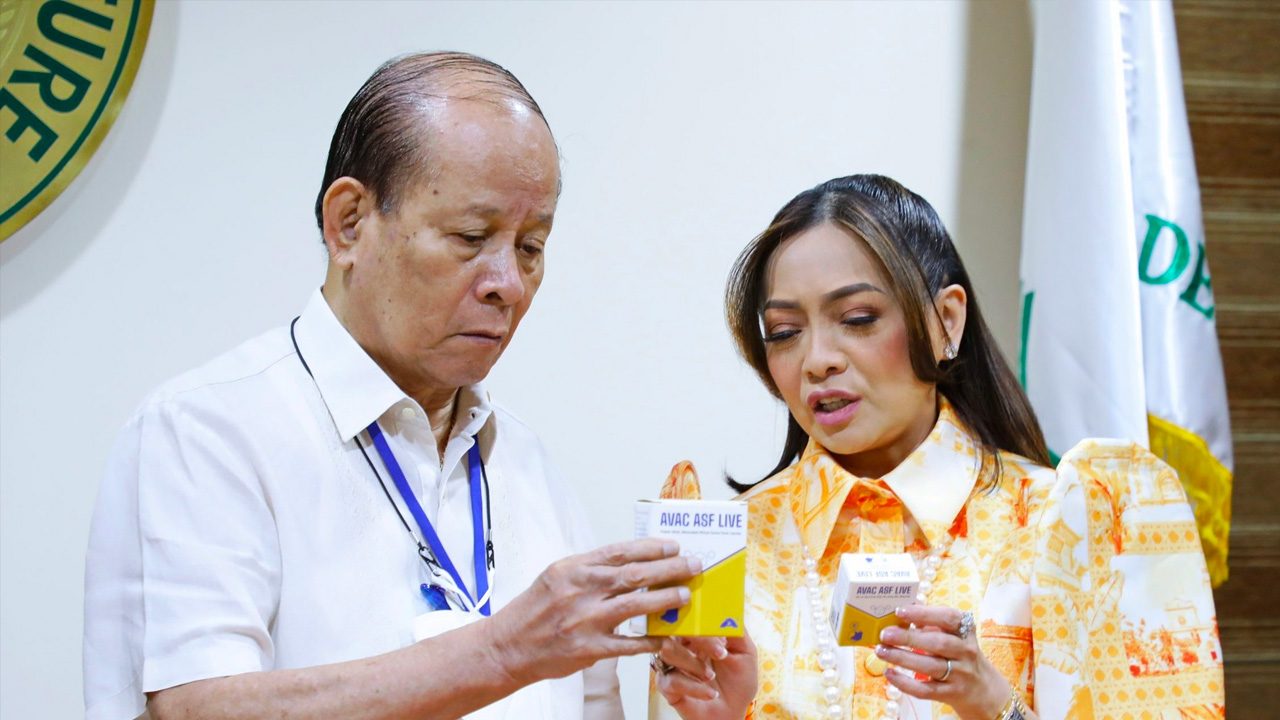
(Editor’s note: The reactions to this story of the companies cited in this article can be read in this follow-up report, Vietnam’s ASF vaccine is safe, effective, companies tell Rappler)
MANILA, Philippines – Several swine farms in Indonesia had been hit by the dreaded African swine fever (ASF) virus since 2019, and one such farm is located in the island of Pulau Bulan, about 22 kilometers off Singapore’s south coast.
Due to the severe impact of the disease, the farm’s herd population – close to 400,000 pigs of which 350,000 were raised primarily to serve the fresh pork market of Singapore – was almost wiped out. This triggered meat traders in the city-republic to scramble for chilled pork suppliers around the world who would be able to quickly fill in the supply shortage brought by the outbreak.
By late May 2023, only a fraction of the vast animal production area in the island was able to survive the onslaught. To this day, managers and veterinarians of the farm operated by PT Indo Tirta Suaka have been painstakingly racing against time to save the remaining standing animals, a reliable insider, familiar with the farm’s animal health and operation, told this writer recently.
“Our immediate concern now is to save the animals and to be able to resume live hog export shipment to Singapore within a year. Otherwise we could lose our long-standing supply contract with its government,” the insider, who spoke on condition of anonymity due to the sensitivity of the matter, said.
Huge farm losses
Before the trouble started, PT Indo Tirta Suaka was delivering 1,000 live hogs to Singapore daily, a shipment accounting for 15% of the city-state’s total pork supply. The animal delivery is equivalent to two-thirds of Singapore’s freshly slaughtered pork, according to a report by The Straits Times.
At the peak of the outbreak around mid-April, up to 2,000 pigs had been dying each day and the farm’s total herd size was already being devastated.
A similar situation was happening in other pig-producing areas on the islands of Sumatra, Java and Sulawesi. Given the dire condition of these farms, many farm owners decided to gamble on their animals’ health by buying Vietnam’s AVAC ASF live vaccine from suppliers.
“But six weeks after vaccination, with substantial percentage of the total doses already used, mortality inside the Pulau Bulan farm rose sharply until only a fifth, or 20% of its herd’s population, was left,” the insider revealed.
Company swine professionals attributed the increase in deaths to shedding, which they said arose as a result of injecting the vaccine into thousands of pigs, the insider said.
In biology, shedding is the process of releasing a virus or bacterium from a cell or body through the environment through blood, tears, and other body fluids where it can infect other animals or people.
“Our veterinarians noticed that after injecting AVAC vaccine, other diseases they thought had already been under control started to flare up. They recorded increased cases of Porcine Reproductive and Respiratory Syndrome (PRRS),” the insider said.
The same insider also disclosed that a friend from another farm who also used the vaccine had experienced a rise in Porcine Circovirus (PCV2) cases after injection.
“The impact is too much to describe,” the insider revealed. “In all, we estimate farm losses at hundreds of millions of US dollars.”
KPP Powers and AVAC partnership
Meanwhile, between July 2022 and August this year, two companies which became close business partners although separated by the South China Sea, were in constant contact with each other over efforts to bring the AVAC vaccine into the Philippines to be offered as an immediate solution to its worsening ASF problem.
The Filipino partner is Quezon City-based KPP Powers Commodities Incorporated, led by couple Juancho Robles and wife Pinky Pe Tobiano, a fashion-loving chemist and influential entrepreneur in agribusiness circles.
Less than six months after Tobiano’s well-publicized meeting with DA Senior Undersecretary Domingo Panganiban and Bureau of Animal Industry director Paul Imson, several vials of the vaccine arrived in the country for safety and efficacy trials in company-selected swine farms.
As of this writing, KPP Powers has succeeded in getting from the Food and Drug Administration (FDA) a special import permit to bring in a large volume of the live vaccine – for sale. The permit came even as the firm admitted that it has yet to obtain from FDA a certificate of product registration (CPR) as required by law, to legitimize its import and local distribution of the product.
“FDA issued us a special import permit for 300,000 doses, not 360,000. The special import permit was granted in conjunction with our CPR application with the FDA which is currently in process. We are still required to monitor the distribution of the vaccines while the CPR is in process,” said Robles in response to emailed queries about the product sent to his company by this writer on August 8, Tuesday.
For its part, KPP Powers’ partner AVAC Vietnam Joint Stock Company, and its American associate, St. Louis, Missouri-based startup Aptimmune Biologics Incorporated, have been doing collaborative work for months to develop and commercialize the vaccine.
The Vietnamese firm, headed by General Director and CEO Nguyen Van Diep, said it had already secured market authorization for the product’s use among hog raisers in Vietnam. This came after the company, located near Hanoi, claimed to have hurdled safety trials and attained 94% efficacy rate of the vaccine on several hundred pigs, without side effects.
The AVAC product is one of two Vietnam-made biologicals touted to become the world’s first duly approved ASF vaccine authorized to be sold globally.
But like the Philippines, Vietnam is still battling the deadly swine disease. This, despite repeated claims by AVAC its vaccine has gained large-scale acceptance by hog raisers. All of Vietnam’s 62 provinces and municipalities have experienced outbreaks since its agriculture ministry confirmed its first ASF outbreak in February 2019, UN Food and Agriculture Organization data show.
Links between AVAC and Viet authorities
Riding on its close connection with Vietnam’s socialist government, particularly with the country’s animal health regulators, AVAC was able to secure the license to produce and distribute the vaccine under a loosened veterinary regulatory arrangement, a reliable source said.
The source, who declined to be indentified due to the sensitivity of the matter, said Vietnam officials were too eager to achieve political mileage over the AVAC vaccine by issuing its marketing authorization without due diligence and rigor over the product registration process.
The standard process, from whose field trial results were to be thoroughly and independently generated and evaluated to earn scientific credibility, should be compliant with global regulatory standards and practices, the source explained.
The source fell short of saying the vaccine gained regulators’ nod from lobbying and political patronage.
The source also pointed out that Vietnam wanted to project an image before the world that its locally established company has gained the technology to successfully develop an ASF vaccine, which boosts their national prestige and potentially brings huge profit from sales in the domestic and export markets.
Safety concern
Despite AVAC’s seeming achievement, concern over its product’s safety and its sustainable effectiveness in building animal immunity and controlling ASF transmission among pigs has been gaining ground in various parts of the world, notably in Vietnam, the Philippines, Indonesia and the United States.
Contrary to AVAC’s and KPP Powers’ marketing propaganda, many hog farms in Vietnam, including the swine unit of Thai conglomerate Charoen Pokphand (CP), have stopped using the product for safety reasons. Thousands of AVAC vaccines had been left or abandoned on shelves and private cold storage areas, the source said.
Such repudiation is echoed by officials of CP Foods Philippines Corporation, a wholly owned subsidiary of the Thai multinational which raises thousands of pigs, chicken and aquaculture species in various parts of country.
“Even if approved by FDA, we still will not use AVAC vaccines as the results do not show 100% immunity,” said Nattakorn “Golf” Sujipittham, head of CP Foods Philippines’ swine operation, in an email sent to this writer recently. He made the reply when asked if his firm was willing to buy the AVAC vaccine if and when sold in the local market.
“It is a live vaccine and it would still induce shedding to other healthy animals. Our protection is only biosecurity and more biosecurity,” he added.
Controversial virus strain
Scientists’, hog producers’ and veterinarians’ growing distrust of the vaccine revolves around its active ingredient, ASFV-G-∆MGF, which AVAC uses to manufacture the product.
On October 27, 2022, the US Department of Agriculture (USDA) released in the Federal Registry a notice warning the public it has decided to withdraw the ASF virus strain ASFV–G-∆MGF from its inventory of virus strains allowed for research and for commercial use.
In the same notice, USDA said it has removed ASFV–G-∆MGF strain from the list on the National Select Agent Registry website because it concluded that the questionable virus – the very same strain used to produce AVAC ASF Live vaccine – “has the potential to pose a severe threat to animal health or animal products.”
USDA added it has raised serious doubts and concern regarding the strain’s safety, saying “its genome is very unstable, potentially leading to reversion of virulence when used on pigs.”
Aptimmune’s role in AVAC vaccine development
While AVAC Vietnam’s American partner Aptimmune Biologicals was fully aware of the USDA federal notice, it admitted to have been supplying the withdrawn ASF strain to AVAC as part of their vaccine research and development collaboration.
“Aptimmune provided the working seed strain ASFV-G-∆MGF to AVAC under a Material Transfer Agreement and a Technical Service Agreement to have research on the materials performed by an independent third-party researcher for work on the virus,” said company CEO Heather Bessoff. She was responding to emailed questions sent to her by this writer in July 2023 regarding her company’s links to AVAC.
Asked if USDA took steps like sending a letter or email to officially recommend to the Vietnamese government and AVAC to discontinue production and distribution of the vaccine for safety reasons pending further evaluation, Bessoff did not comment at length.
“Aptimmune has no knowledge of any correspondence between USDA and Vietnam’s veterinary authorities,” Bessoff said. “The relative safety of any vaccine is ultimately the responsibility of the firm developing the strain and the local governing regulatory body,” she added.
Fate of AVAC vaccine in the Philippines
As of this writing, no one can yet determine the fate of the AVAC ASF Live vaccine before FDA regulators and agriculture officials, led by President Ferdinand Marcos Jr., who also heads the agriculture department. Whether or not it gets the product registration certificate to solidify the authority of its distributor KPP Power to legally sell the vaccine in the open market remains to be seen.
But this early, unverified reports are spreading among hog industry circles that the product is being sold in the black market for P600 per vial, with naïve commercial and backyard swine raisers targeted as favorite customers.
“The sale comes with a waiver freeing the supplier of any liability in case the buyer-hog farmer who uses it experiences farm mortality or injury due to off-label instruction,” said a swine professional familiar with the illicit trade.
Given the loose government control over veterinary drugs unlawfully sold in the countryside, there could soon be a human-induced swine pandemic of disastrous proportions, perhaps far worse than the ASF outbreaks the Philippines had seen in the recent past, industry stakeholders said.
“We should expect a very bleak future for the hog sector and allied industries at the start of 2024 if we allow today the AVAC vaccine to be used in our farms,” an operations manager of one of the country’s largest pig farms who declined to be named, warned. – Rappler.com
Fermin Diaz, a veteran journalist, is the editor and managing director of Livestock and Meat Business (LaMB) Magazine, a quarterly trade journal. He is also the president of Philippine Agricultural Journalists (PAJ) Inc., a professional organization of journalists, communicators and information officers covering agriculture, agribusiness and the environment.
Add a comment
How does this make you feel?
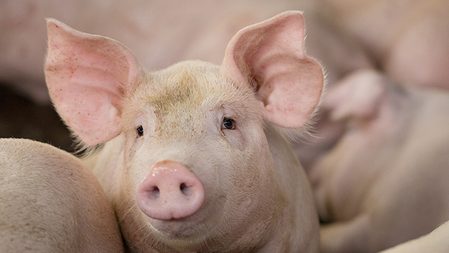

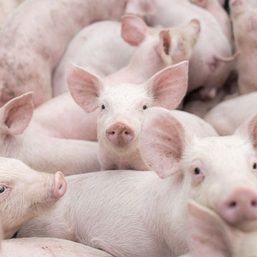
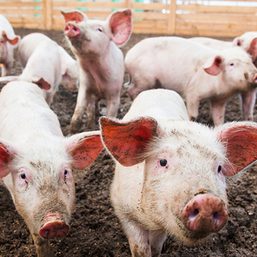
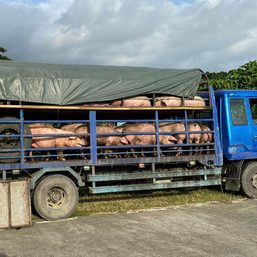




There are no comments yet. Add your comment to start the conversation.